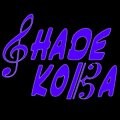
Cross-posted from  roaringlion (http://www.furaffinity.net/view/5311704)
roaringlion (http://www.furaffinity.net/view/5311704)
HYMNOLOGY
Session 1: Joyful, Joyful, We Adore Thee
Occurrences of this Hymn:
• African American Heritage Hymnal #120
• Baptist Hymnal 1991 #7
• Baptist Hymnal 2008 #13
• Celebration Hymnal #90
• Celebration Hymnal #271
• Chalice Hymnal #2
• Hymnal 1982: according to the use of the Episcopal Church #376
• Evangelical Lutheran Worship #836
• Gather Comprehensive #528
• Gather Comprehensive, Second Edition #520
• Hymns of Faith #29
• Lutheran Service Book #803
• Presbyterian Hymnal #464
• Rejoice in the Lord #521
• Sing Joyfully #13
• The Worshiping Church #20
• The United Methodist Hymnal #89
• Worship & Rejoice #59
The author of this hymn, Henry Jackson van Dyke, was born in Pennsylvania in 1852, and became pastor of the Brick Presbyterian Church in New York City. Henry later became professor of English literature at Princeton, and the author of a number of books, including the still popular “The Other Wise Man.” He went on to occupy a number of eminent positions, including:
• American Ambassador to the Netherlands and Luxenbourg (appointed by his friend, Woodrow Wilson)
• Lieutenant Commander in the United States Navy Chaplains Corps during World War I
• Moderator of the General Assembly of the Presbyterian Church
• Commander of the Legion of Honor
• President of the National Institute of Arts and Letters
• Chairman of the committee that compiled the Presbyterian Book of Common Worship
In 1907, Henry van Dyke was invited to preach at Williams College in Massachusetts. At breakfast one morning, he handed the college president a piece of paper, saying, “Here is a hymn for you. Your mountains (the Berkshires) were my inspiration. It must be sung to the music of Beethoven’s ‘Hymn of Joy.’”
When he was later asked about his hymn, van Dyke replied: “These verses are simple expressions of common Christian feelings and desires in this present time – hymns of today that may be sung together by people who know the thought of the age, and are not afraid that any truth of science will destroy religion, or any revolution on earth overthrow the kingdom of heaven. Therefore this is a hymn of trust and joy and hope.”
The verses are as follows:
Joyful, joyful, we adore Thee,
God of glory, Lord of love;
Hearts unfold like flowers before Thee,
Opening to the sun above.
Melt the clouds of sin and sadness,
Drive the dark of doubt away,
Giver of immortal gladness,
Fill us with the light of day.
All Thy works with joy surround Thee,
Earth and heaven reflect Thy rays,
Stars and angels sing around Thee,
Centre of unbroken praise.
Field and forest, vale and mountain,
Flowery meadow, flashing sea,
Chanting bird and flowing fountain
Call us to rejoice in Thee.
Thou art giving and forgiving,
Ever blessing, ever blest,
Well-spring of the joy of living,
Ocean-depth of happy rest!
Thou our Father, Christ our Brother,
All who live in love are Thine;
Teach us how to love each other,
Lift us to the Joy Divine.
Mortals, join the mighty chorus,
Which the morning stars began;
Father-love is reigning o’er us,
Brother-love binds man to man.
Ever singing, march we onward,
Victors in the midst of strife,
Joyful music leads us Sunward
In the triumph-song of life.
The Hymnal : published in 1895 and revised in 1911 by authority of the General Assembly of the Presbyterian Church in the United States of America : with the supplement of 1917, 1921
The melody most associated with this hymn is derived from the “Ode to Joy” or “Hymn of Joy” which is found in the last movement of Ludwig van Beethoven’s 9th Symphony, “Choral.” Several different hymns have been sung to this melody. In the 2008 Baptist Hymnal alone, there are 3 hymns that utilize the "Hymn to Joy."
Both can be heard by clicking the links below:
Joyful, Joyful, We Adore Thee
Symphony No. 9, “Choral” – Mvt. 4, Presto – Allegro ma non troppo – Vivace
Resources:
Hymnary.org. http://www.hymnary.org.
Morgan, Robert J. Then Sings My Soul. Vol. I. II vols. Nashville, TN: Thomas Nelson, 2003.
 roaringlion (http://www.furaffinity.net/view/5311704)
roaringlion (http://www.furaffinity.net/view/5311704)HYMNOLOGY
Session 1: Joyful, Joyful, We Adore Thee
Occurrences of this Hymn:
• African American Heritage Hymnal #120
• Baptist Hymnal 1991 #7
• Baptist Hymnal 2008 #13
• Celebration Hymnal #90
• Celebration Hymnal #271
• Chalice Hymnal #2
• Hymnal 1982: according to the use of the Episcopal Church #376
• Evangelical Lutheran Worship #836
• Gather Comprehensive #528
• Gather Comprehensive, Second Edition #520
• Hymns of Faith #29
• Lutheran Service Book #803
• Presbyterian Hymnal #464
• Rejoice in the Lord #521
• Sing Joyfully #13
• The Worshiping Church #20
• The United Methodist Hymnal #89
• Worship & Rejoice #59
The author of this hymn, Henry Jackson van Dyke, was born in Pennsylvania in 1852, and became pastor of the Brick Presbyterian Church in New York City. Henry later became professor of English literature at Princeton, and the author of a number of books, including the still popular “The Other Wise Man.” He went on to occupy a number of eminent positions, including:
• American Ambassador to the Netherlands and Luxenbourg (appointed by his friend, Woodrow Wilson)
• Lieutenant Commander in the United States Navy Chaplains Corps during World War I
• Moderator of the General Assembly of the Presbyterian Church
• Commander of the Legion of Honor
• President of the National Institute of Arts and Letters
• Chairman of the committee that compiled the Presbyterian Book of Common Worship
In 1907, Henry van Dyke was invited to preach at Williams College in Massachusetts. At breakfast one morning, he handed the college president a piece of paper, saying, “Here is a hymn for you. Your mountains (the Berkshires) were my inspiration. It must be sung to the music of Beethoven’s ‘Hymn of Joy.’”
When he was later asked about his hymn, van Dyke replied: “These verses are simple expressions of common Christian feelings and desires in this present time – hymns of today that may be sung together by people who know the thought of the age, and are not afraid that any truth of science will destroy religion, or any revolution on earth overthrow the kingdom of heaven. Therefore this is a hymn of trust and joy and hope.”
The verses are as follows:
Joyful, joyful, we adore Thee,
God of glory, Lord of love;
Hearts unfold like flowers before Thee,
Opening to the sun above.
Melt the clouds of sin and sadness,
Drive the dark of doubt away,
Giver of immortal gladness,
Fill us with the light of day.
All Thy works with joy surround Thee,
Earth and heaven reflect Thy rays,
Stars and angels sing around Thee,
Centre of unbroken praise.
Field and forest, vale and mountain,
Flowery meadow, flashing sea,
Chanting bird and flowing fountain
Call us to rejoice in Thee.
Thou art giving and forgiving,
Ever blessing, ever blest,
Well-spring of the joy of living,
Ocean-depth of happy rest!
Thou our Father, Christ our Brother,
All who live in love are Thine;
Teach us how to love each other,
Lift us to the Joy Divine.
Mortals, join the mighty chorus,
Which the morning stars began;
Father-love is reigning o’er us,
Brother-love binds man to man.
Ever singing, march we onward,
Victors in the midst of strife,
Joyful music leads us Sunward
In the triumph-song of life.
The Hymnal : published in 1895 and revised in 1911 by authority of the General Assembly of the Presbyterian Church in the United States of America : with the supplement of 1917, 1921
The melody most associated with this hymn is derived from the “Ode to Joy” or “Hymn of Joy” which is found in the last movement of Ludwig van Beethoven’s 9th Symphony, “Choral.” Several different hymns have been sung to this melody. In the 2008 Baptist Hymnal alone, there are 3 hymns that utilize the "Hymn to Joy."
Both can be heard by clicking the links below:
Joyful, Joyful, We Adore Thee
Symphony No. 9, “Choral” – Mvt. 4, Presto – Allegro ma non troppo – Vivace
Resources:
Hymnary.org. http://www.hymnary.org.
Morgan, Robert J. Then Sings My Soul. Vol. I. II vols. Nashville, TN: Thomas Nelson, 2003.
Category Music / Other Music
Species Unspecified / Any
Size 120 x 81px
File Size 1.89 MB

 FA+
FA+









Comments